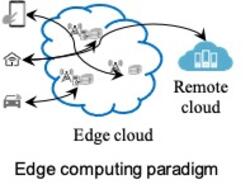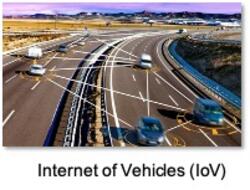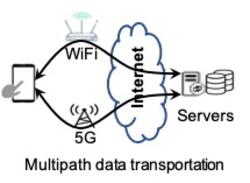Research
Our laboratory conducts research on edge computing, information networks, and smart systems necessary to realize a smart society. Our research approach emphasizes the integration of computing, communication, and artificial intelligence, and our research and development aims to provide information and communication infrastructure and advanced applications for a sustainable future society.
1. Edge computing
In recent years, with the rapid growth of mobile computing and communications technologies, the shift to the IoT-edge paradigm, where cloud functions are distributed from data centers to edge servers at the edge of the Internet, is becoming clearer. However, most existing research is focused on specific services, and the large-scale general-purpose edge computing technology as required by smart cities, has yet to be established. Our laboratory is developing the optimal architecture and orchestration mechanism for large-scale general-purpose edge computing systems with state-of-the-art technology, aiming at providing efficient solutions with low cost to support the future smart society.

Keywords
Edge computing, Orchestration, Online optimization
2. Smart systems
In addition to the research and development of fundamental edge computing technologies, it is also necessary to research and develop a variety of advanced applications that take advantage of these technologies. We believe that advanced applications enabled by large-scale edge computing can contribute to the realization of smart cities. On the other hand, feedback from application usage to the edge computing systems will lead to improvement and refinement of the edge computing infrastructure. Therefore, our laboratory is developing data distribution systems, industrial IoT systems, renewable energy management systems, and other intelligent applications for a smart society.

Keywords
Advanced applications, IoT-edge paradigm, smart society
3. Transport network
Transport networks, located between edge clouds and smart terminals, play an important role in providing high-quality services to users. However, due to the highly dynamic mobile network environment and heterogeneity of physical resources, conventional optimization methods cannot achieve the expected results. To solve these problems, our laboratory uses the latest machine learning techniques to predict the dynamics of the network environment, and based on these predictions, solves the optimal network resource allocation and data transportation problems, aiming to provide high-quality data transmission services to the smart society.

Keywords
Future prediction, dynamic path calculation, multipath data transportation


